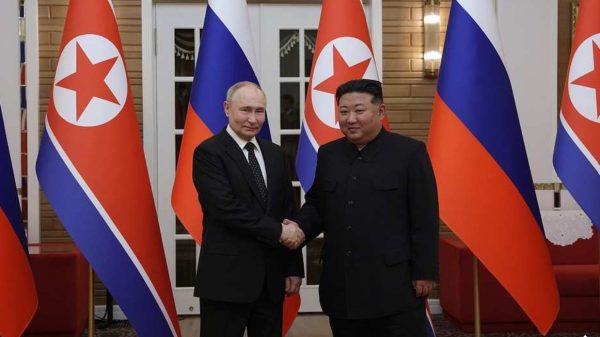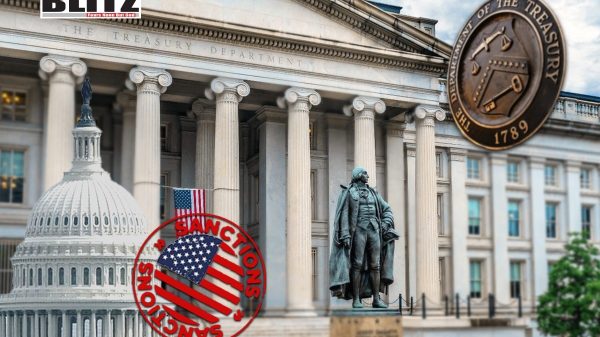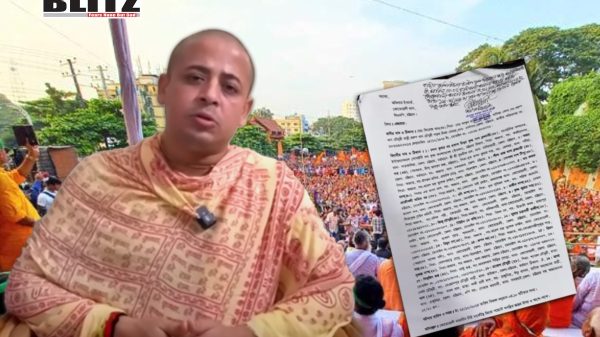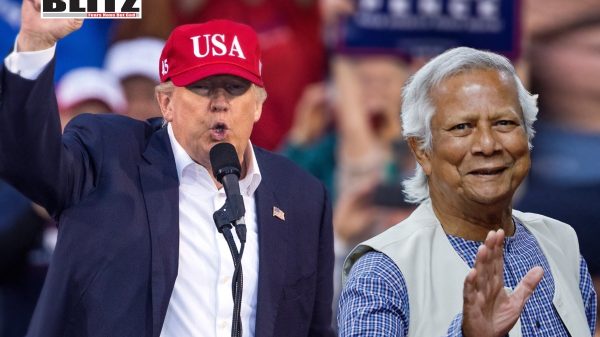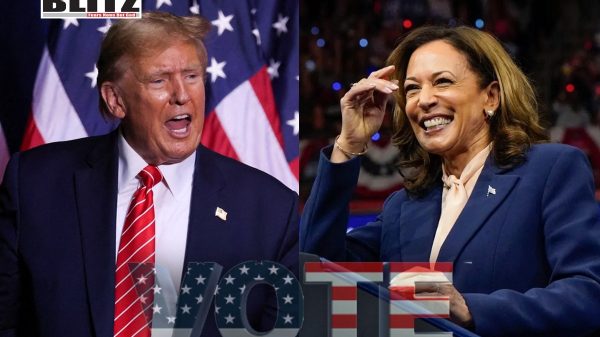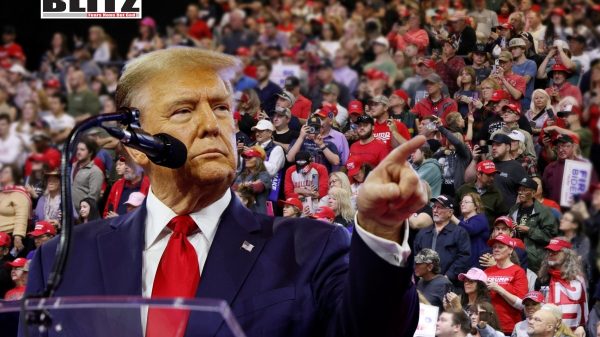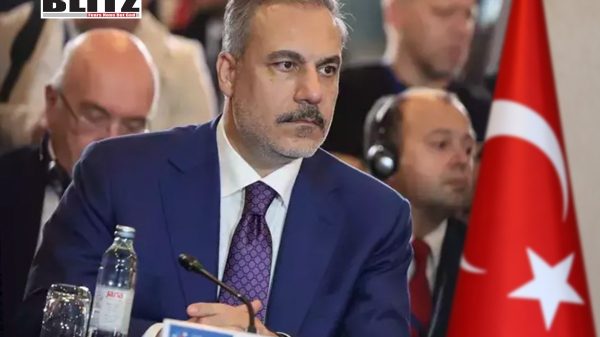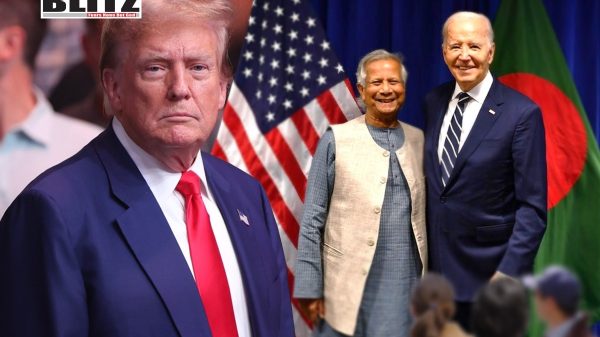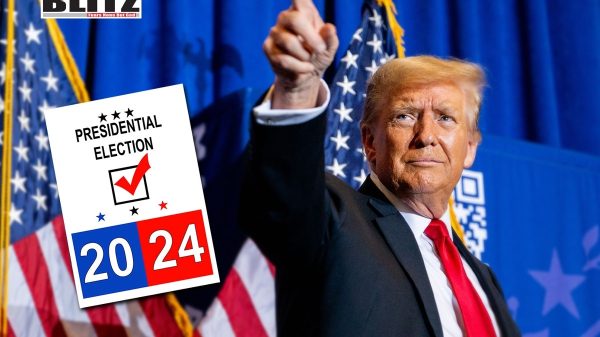Jatiyo Party uses bank defaulter S Alam’s property as headquarters
- Update Time : Saturday, November 2, 2024
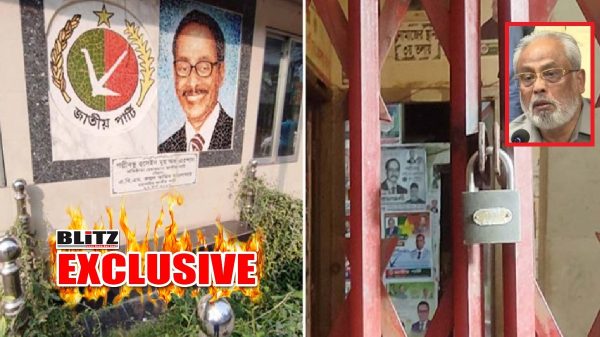
As Bangladesh undergoes a political transformation following the removal of Sheikh Hasina from power, scrutiny intensifies on her former allies, including the Jatiyo Party led by GM Quader. Once positioned as a pseudo-opposition while supporting the Awami League’s rule, the Jatiyo Party now faces a reckoning. Its financial dealings, political alliances, and suspected connections with Pakistan’s intelligence agency have drawn the attention of Bangladesh’s intelligence agencies and key figures in the new administration led by Muhammad Yunus.
Following the ouster of authoritarian ruler Sheikh Hasina, the Awami League is now grappling with numerous challenges due to its controversial activities over the past fifteen years. One of Sheikh Hasina’s key allies, the Jatiyo Party, led by GM Quader, is facing intense scrutiny. The party’s close collaboration with the Awami League and its alleged connections with Pakistan’s intelligence agency, the Inter-Services Intelligence (ISI), are now under examination by various Bangladeshi intelligence agencies and several figures within Muhammad Yunus’s revolutionary government.
For more than fifteen years, the Jatiyo Party has portrayed itself as the “main opposition” in Bangladesh. However, in reality, it has either directly participated in the Awami League government or acted as a subservient ally to Sheikh Hasina. During the 2014–2018 term, when the main opposition, the Bangladesh Nationalist Party (BNP), announced a boycott of the general election, demanding a neutral election process, the Jatiyo Party, under former military ruler Gen Hussain Muhammad Ershad, decided to cooperate with Sheikh Hasina. It is reported that, in return, the Jatiyo Party received a significant amount of cash to cover “election expenses”.
Following the controversial 2014 election, the Jatiyo Party emerged as the “main opposition” in parliament. However, several of its leaders, including Gen Ershad, were granted government positions, with Ershad himself appointed as the “Special Envoy” to Prime Minister Sheikh Hasina. His younger brother, GM Quader, was given the Civil Aviation Ministry, while several other Jatiyo Party leaders were appointed to key ministerial roles, allowing them to engage in widespread corruption. Allegedly, Jatiyo Party officials in these ministries amassed substantial sums through corruption and misappropriation of funds, some of which were reportedly laundered to countries such as Malaysia and Canada.
From 2014 to 2024, the Jatiyo Party was one of the primary beneficiaries of the Awami League’s rule, gaining various commercial advantages, including a license to establish a bank. Due to its strong relationship with the Awami League, Sheikh Hasina reportedly instructed one of her top oligarchs, S Alam, to provide a property at 66 Kakrail in Dhaka as the Jatiyo Party’s headquarters. Since then, the party has continued its activities from this location.
It should be noted that, following Sheikh Hasina’s ouster, law enforcement agencies, including the Anti-Corruption Commission (ACC), have initiated investigations into numerous allegations against her associates.
As one of Sheikh Hasina’s top oligarchs, S Alam is accused of embezzling over US$ 12 billion from various commercial banks, allegedly transferring much of this amount to countries including the United States, United Kingdom, Australia, Canada, Malaysia, and Dubai. In response, the High Court division of the Bangladesh Supreme Court has directed the relevant authorities to confiscate all of Alam’s movable and immovable assets within Bangladesh. While the confiscation process is underway, the Jatiyo Party’s headquarters, also owned by S Alam, has yet to be seized.
The ongoing investigation into S Alam’s assets, including the Jatiyo Party’s headquarters, highlights the shifting political landscape in Bangladesh and signals that previous alliances with Sheikh Hasina’s government are no longer shields against accountability. As scrutiny intensifies, the Jatiyo Party’s future and its role in the political arena remain uncertain, and the unfolding legal actions could redefine the country’s approach to addressing corruption and political patronage.




